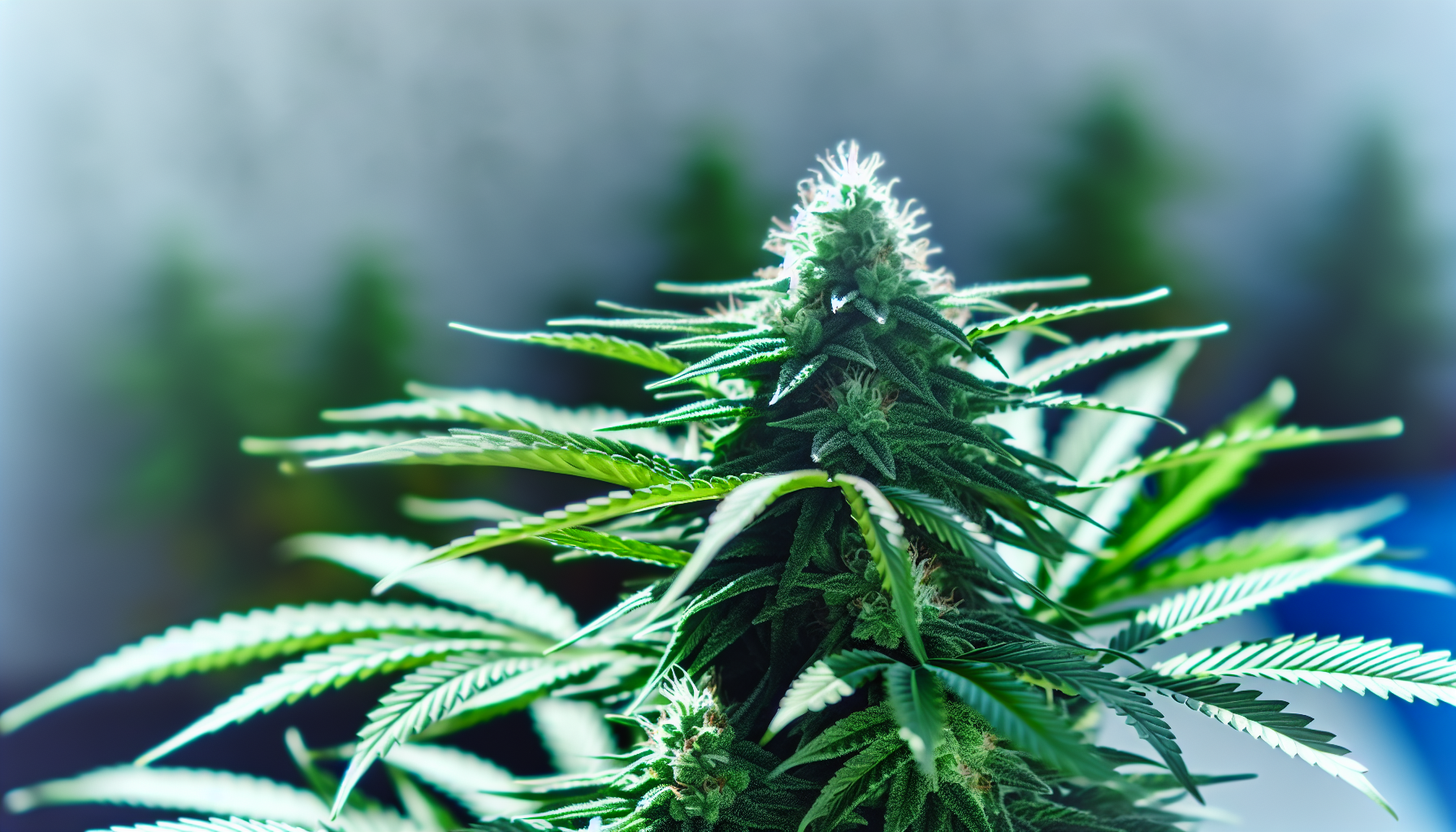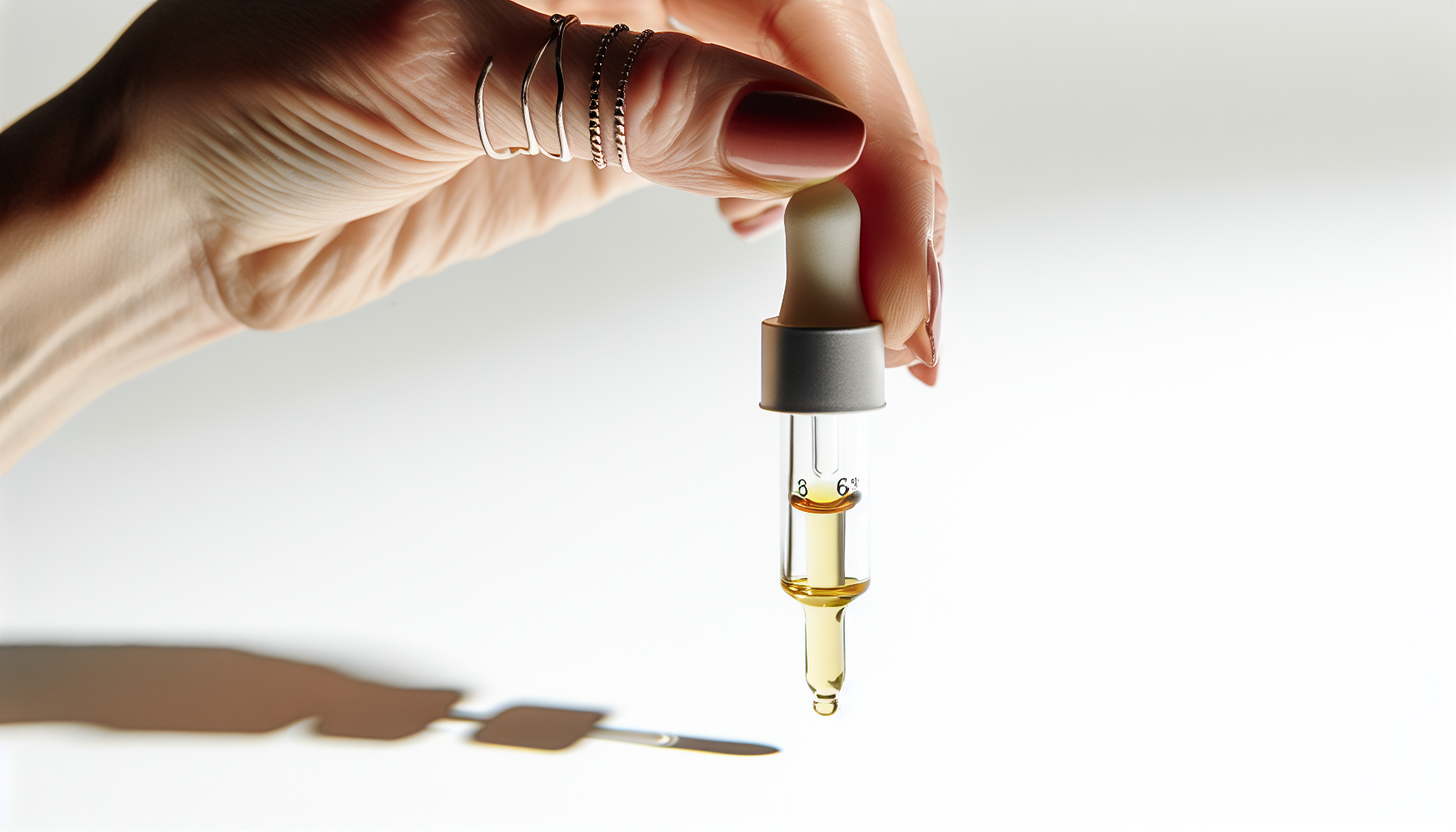In the world of both recreational and medical cannabis, there are various compounds, some of which have even gained popularity in the health and wellness space. One of these particular compounds is called THC-V. This cannabis sativa extract is becoming quite popular due to some of its unique properties and potential beneficial effects.
You've heard of THC but what is THCV? Simply put, it’s a cannabinoid found in cannabis plants that is similar to traditional THC, but with a twist, it acts differently in the body, potentially offering health benefits like appetite suppression and improved mood without the intense high typical of THC. This article unpacks THCV’s properties, health potentials, and how it compares to other cannabinoids.
Key Takeaways
-
THCV is a minor cannabinoid found in cannabis that has unique molecular characteristics, offering a potential therapeutic benefit such as weight management, improved glycemic control, and antipsychotic effects.
-
Proper dosing of THCV is important, with low doses suggested for beginners to monitor effects while considering potential side effects like dizziness, anxiety, and nausea.
-
THCV products are legal in the U.S. under the 2018 Farm Bill if they contain less than 0.3 percent Delta 9 THC, but consumers need to check local state regulations for specific legality.
What is THCV?

What is THCV? THCV is a minor cannabinoid found in certain strains of the cannabis sativa plant, sometimes referred to as "diet weed". With a molecular weight of 286.41 g/mol and its distinctive benzene-pyran ring structure with functional groups attached, THCV can be included in medical cannabis products to potentially provide therapeutic advantages for patients.
While THC may be the most commonly known cannabinoid, THCV is similar in some ways. Something particularly unique about THCV is that it can reduce the effects of THC, this is because THCV interacts differently with our body’s endocannabinoid system. This interaction has significant effects on physiological functions like appetite and mood regulation. Although it shares some similarities with THC, THCV clearly stands out on its own due to these distinct properties.
This makes it an important component present in medicinal marijuana products derived from extracts of the cannabis sativa plant, which offers alternative treatment options for individuals seeking relief from various health issues influenced by this complex interplay between cannabinoids within our bodies.
Origin of THCV
THCV is a cannabinoid found in cannabis that is closely related to THC and synthesized from the same precursor, cannabigerolic acid (CBGA). The process involves converting CBGA into cannabigerovarin acid (CBGVA), which then transforms into THCV’s acidic form known as THCVA.
Heat exposure triggers decarboxylation of THCVA, leading to the creation of THCV. This step is crucial in producing THCV with its distinct pharmacological properties. Unlike conventional cannabinoids, cannabinoids such as THCV have shorter carbon side chains consisting of only three atoms instead of five, highlighting their potential applications and shedding light on their origins.
Psychoactive Properties
While THCV may be considered a minor cannabinoid, its molecular structure resembles THC very closely and its impact on the body should not be underestimated. It is known to interact with CB1 and CB2 receptors in our central nervous system and peripheral nervous system, both of which play significant roles in regulating bodily functions.
At low doses, THCV acts as an antagonist for CB1 receptors. At higher doses, it can produce mild psychoactive effects similar to that of THC. Although one key difference is that it can also produce antipsychotic effects. This means that while it may have some effect on cognitive and motor skills, there could also potentially be therapeutic benefits associated with using this compound - making it a possible choice for “diet weed.”
The duration of the psychoactive effects caused by THCV is shorter and far less intense than those produced by THC. The time frame varies from 30 minutes up to five hours depending primarily on dosage levels and method of consumption utilized. Keep in mind, that typically very large amounts would be required for these effects to occur.
Potential Benefits of THCV

The potential benefits of THCV mirror the uniqueness of the cannabinoid itself. Preliminary research suggests that THCV may have anti-inflammatory properties that could benefit individuals with inflammatory conditions. Its neuroprotective qualities also offer potential therapeutic applications for neurodegenerative disorders such as Alzheimer's disease.
One standout potential benefit of THCV lies in its potential to aid in weight management and a possible appetite suppressant. Because of its potential to suppress appetite and increase energy levels, it may be a promising compound for addressing metabolic issues and leading to a healthier body weight.
Furthermore, THCV has demonstrated antipsychotic potential, reducing stereotyped behavior and improving cognitive performance in animal models, indicating its potential therapeutic applications for various conditions.
Appetite Control and Weight Loss

If you are aiming for weight loss or maintenance, this rare cannabinoid might just be the solution for you. At lower doses, it serves as an antagonist to CB1 receptors which can help reduce appetite and boost energy levels without causing any psychoactive effects. This could potentially aid in reducing food cravings.
For those seeking its appetite suppression benefits for weight loss purposes, a recommended dosage of 5mg to 7.5mg is suggested. Although human trials have shown conflicting outcomes, THCV’s influence on glycemic and lipid parameters makes it a possible option for managing weight and helping those with type 2 diabetes.
Insulin Sensitivity and Diabetes
THCV has the potential to offer numerous advantages beyond weight management. One of its benefits includes improving insulin sensitivity by decreasing fasting plasma glucose levels in individuals with type 2 diabetes, an indication of better control over blood sugar, and a heightened response to insulin. Some studies show that THCV ameliorates insulin sensitivity allowing the efficiency of our bodies to process glucose.
Obese individuals who have been given THCV supplements showed improved tolerance towards glucose, suggesting that it could potentially be used as a treatment for those struggling with high levels of glucose intolerance, such as people living with type 2 diabetes. This can serve as another effective tool in managing this prevalent disease.
Antipsychotic and Anti-inflammatory Effects
Aside from its metabolic advantages, THCV also presents potential in the field of mental health due to its possible ability to act as an antipsychotic. There is evidence suggesting that it could be beneficial for treating conditions like schizophrenia and other psychiatric ailments.
Studies on animals have revealed that THCV has anti-inflammatory properties, which may make it a promising treatment option for inflammatory pain. Whether used to improve mental well-being or alleviate physical discomfort, the therapeutic benefits of THCV hold promise and deserve exploration.
THC-V Dosage

While the potential advantages of THCV are alluring, it is crucial to understand the proper dosage for minor cannabinoids like this. It’s recommended to begin with a low amount and gradually increase until finding the ideal level that suits individual needs.
Similar to any substance, there can be side effects from using THCV. These may include feelings of lightheadedness, anxiety, or nausea. It’s important to proceed cautiously and monitor your body’s response when trying out new substances.
Determining the Right Dosage
For those unfamiliar with THCV, it is recommended to begin with a small amount. For instance, the standard dose for THCV gummies is 10 mg per piece and this would be suitable for most individuals. It may be beneficial for new users to start by consuming half of a 10mg gummy in order to monitor its effects before moving on to a full gummy.
Alternatively, THCV oil tinctures usually contain 20mg of THCV per dropper. Beginners should first try using one-fourth or one-half of a dropper to ensure their tolerance before increasing the dosage.
Potential Side Effects of THC-V
It is important to note that like any substance, there may be potential side effects associated with consuming THCV. While the exact nature of these side effects is not fully understood at this time, research suggests that it can be considered safe for adults when used responsibly.
Excessive use or consumption of cannabis products could potentially lead to several unwanted symptoms such as dry mouth or eyes, difficulty concentrating, and increased drowsiness. It has also been linked to heightened levels of anxiety, stress, and panic attacks in some cases. It’s crucial for individuals starting on a THCV supplementation regimen to begin with lower doses and gradually increase them while closely monitoring their body’s response in order to minimize any negative reactions.
For assessing the impact different dosing schedules have on an individual’s reaction to THCV supplementation, taking into account factors such as parallel group pilot studies could prove beneficial. It allows researchers to compare how varying dosage regimens affect participants within separate groups.
By keeping track of changes following each dose adjustment, it becomes possible to decrease signs indicating adverse effects effectively. Additionally, pilot studies provide valuable data regarding safety profiles, revealing insights about whether certain dosages should continue to be administered long-term.
To avoid any possible negative outcomes until someone knows how their body responds to THCV consumption, they need to refrain from driving or participating in tasks that require focused attention. Seeking professional medical advice before incorporating this substance into one’s health routine should always be prioritized - especially for those with pre-existing conditions.
Is THC-V Legal?
An important aspect to consider is the legality of THCV. In the United States, products containing THCV are legally sold as hemp products due to the 2018 Farm Bill, which permits compounds derived from hemp with a Delta 9 THC concentration lower than 0.3 percent.
It’s worth noting that the legal status of THCV may vary depending on state regulations and whether cannabis and hemp is allowed in that particular state. It’s recommended to always check local laws before purchasing or consuming any THCV products.
THCV Products and Consumption

If you are interested in exploring the potential benefits of THCV, there are several options for obtaining this cannabinoid. A variety of products containing THCV can be found on the market such as soft gel capsules, gummies, tinctures, vape cartridges and pens. These make it easy to incorporate THCV into your routine with precise dosage control.
Some recommended methods for consuming THCV include using tinctures or edibles made specifically from this compound. Vape cartridges that contain high levels of THC may also provide an effective means of ingesting THC through inhalation. It is important to always ensure that these products come from US-grown hemp and have been tested by third-party laboratories to guarantee safety and quality.
To obtain a product containing THCV effectively, many variations exist like gelcaps along with alternatives like vaping items instead often purchased while out-of-doors. You can typically find THCV products in the following forms:
-
Softgel Capsules
-
Gummies
-
Tinctures
-
Vapes (cartridges & pens)
Is THC-V a Cannabinoid That's Right for You?
Although THCV is a lesser-known cannabinoid, it holds great potential. Its distinct psychoactive properties and possible benefits in regulating appetite, improving insulin sensitivity, and reducing inflammation as well as acting as an antipsychotic make it worthy of exploration.
Whether you’re familiar with cannabis or new to the world of cannabinoids, THCV offers a unique set of effects and advantages that may be just what you are looking for.
Ultimately, the decision to use THCV should be based on a combination of considerations including your objectives, tolerance, circumstances, and preferred type of sensory experience associated with cannabis consumption. In order to understand how THC-V aligns with these aspects, it is essential to consider its unique properties alongside other types of cannabis compounds.
Frequently Asked Questions

What does THCV do to the body?
THCV has been found to generate a heightened sense of motivation, alertness, and euphoria that is particularly beneficial during the day or when productivity is necessary. It provides an energizing effect and can help maintain functionality throughout the day.
Is THCV intoxicating?
THCV has a very small potential to cause intoxicating effects when taken in reasonable amounts. That said, users are unlikely to experience a state of being intoxicated from using THCV products.
Does THCV help with anxiety?
Possibly, THCV has been found to be anti-anxiety for some, making it a potential aid in managing anxiety symptoms.
Is THCV the same as Delta 8?
No, THCV is not the same as Delta 8 products. THCV is more similar to CBD in terms of its psychoactive properties, while Delta 8 has mild psychoactive properties and therapeutic potential which more closely resembles traditional THC.
Is THC-V legal?
Yes, THCV is legal as long as it is derived from hemp and contains less than 0.3% THC, according to the 2018 Farm Bill.
*By using this website, you agree to and are subject to the following Legal Disclaimer, which is part of our Terms of Service. The information provided on this website does not and is not intended to constitute legal advice or reliable statements of the status of any laws.






